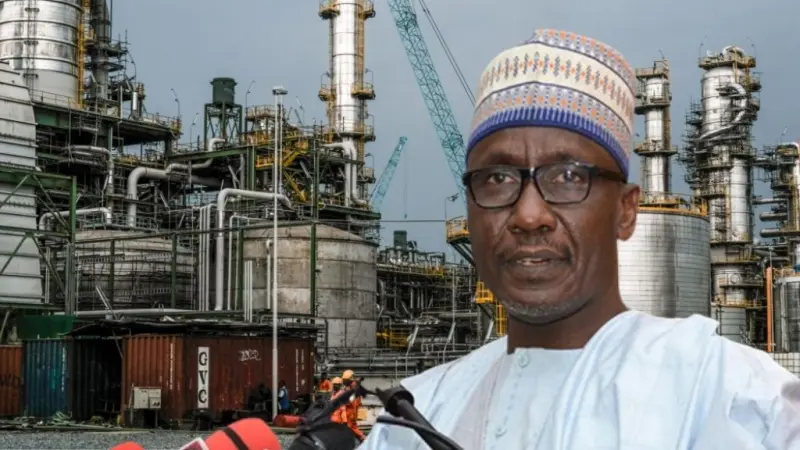The Nigerian National Petroleum Company Limited (NNPCL) has responded to allegations questioning the operational integrity of the Old Port Harcourt Refinery, asserting that blending petroleum products is a globally recognized practice.
The company addressed the claims in a statement released on Tuesday by Olufemi Soneye, its Chief Corporate Communications Officer.
The controversy stemmed from a report alleging that the refinery, instead of processing crude oil, blended “Cracked C5 petroleum resins” with other products, including Naphtha, to create fuel products. Critics claimed this practice misrepresented the refinery’s actual output.
Soneye clarified that the Old Port Harcourt Refinery currently operates at 70% capacity and is on track to ramp up to 90%.
He emphasized that assertions suggesting the refinery is non-operational are “false and misleading.”
To support his claims, Soneye detailed the refinery’s daily outputs: Straight-Run Gasoline (Naphtha): Used to blend 1.4 million liters of Premium Motor Spirit (PMS); Kerosene: 900,000 liters; Automotive Gas Oil (Diesel): 1.5 million liters; Low Pour Fuel Oil (LPFO): 2.1 million liters; Liquefied Petroleum Gas (LPG): Additional volumes; Blending Practices: A Global Norm
The NNPCL spokesperson highlighted that blending is a standard practice in refineries worldwide.
READ ALSO: NNPCL raises petrol prices again
“The Old Port Harcourt Refinery incorporates Cracked C5, a blending component sourced from Indorama Petrochemicals, to produce gasoline that meets regulatory standards. No single refinery unit can independently produce gasoline that fully complies with a country’s standards without blending,” Soneye explained.
On Tuesday, the refinery commenced crude oil processing, a development hailed by President Bola Tinubu as a “groundbreaking milestone” toward achieving energy independence.
Tinubu lauded NNPCL’s efforts in reviving the refinery and urged the company to expedite the reactivation of the second Port Harcourt refinery and the Warri and Kaduna refineries.
Oil and gas analysts have weighed in on the development, with mixed reactions. Some praised the refinery’s restart, emphasizing the significance of producing key petroleum products domestically.
“This is a critical step toward reducing Nigeria’s reliance on imported fuel and boosting local refining capacity,” noted energy expert Chinedu Onuoha.
However, others remain skeptical about the transparency of NNPCL’s operations. “The controversy around blending highlights a need for clearer communication and independent oversight to reassure stakeholders,” said Bolaji Adebayo, an oil industry consultant.
The issue of blending has sparked broader discussions within the oil and gas sector, with companies like Dangote Refinery reportedly adopting similar practices.
Industry observers argue that while blending is standard, transparency around sourcing and processing remains crucial to maintaining public trust.
Soneye also revealed progress on the new Port Harcourt Refinery, which is slated to begin operations soon.
He urged Nigerians to focus on the strides made under President Tinubu’s administration, dismissing what he called “malicious attempts to undermine NNPCL’s achievements.”
This development marks a pivotal moment in Nigeria’s pursuit of energy self-sufficiency, as the government and private sector push to revive and modernize the country’s refining capacity.

 Entertainment5 days ago
Entertainment5 days ago
 Comments and Issues1 week ago
Comments and Issues1 week ago
 Comments and Issues1 week ago
Comments and Issues1 week ago
 Health7 days ago
Health7 days ago
 Comments and Issues1 week ago
Comments and Issues1 week ago
 Health3 days ago
Health3 days ago
 Football7 days ago
Football7 days ago
 Football7 days ago
Football7 days ago

